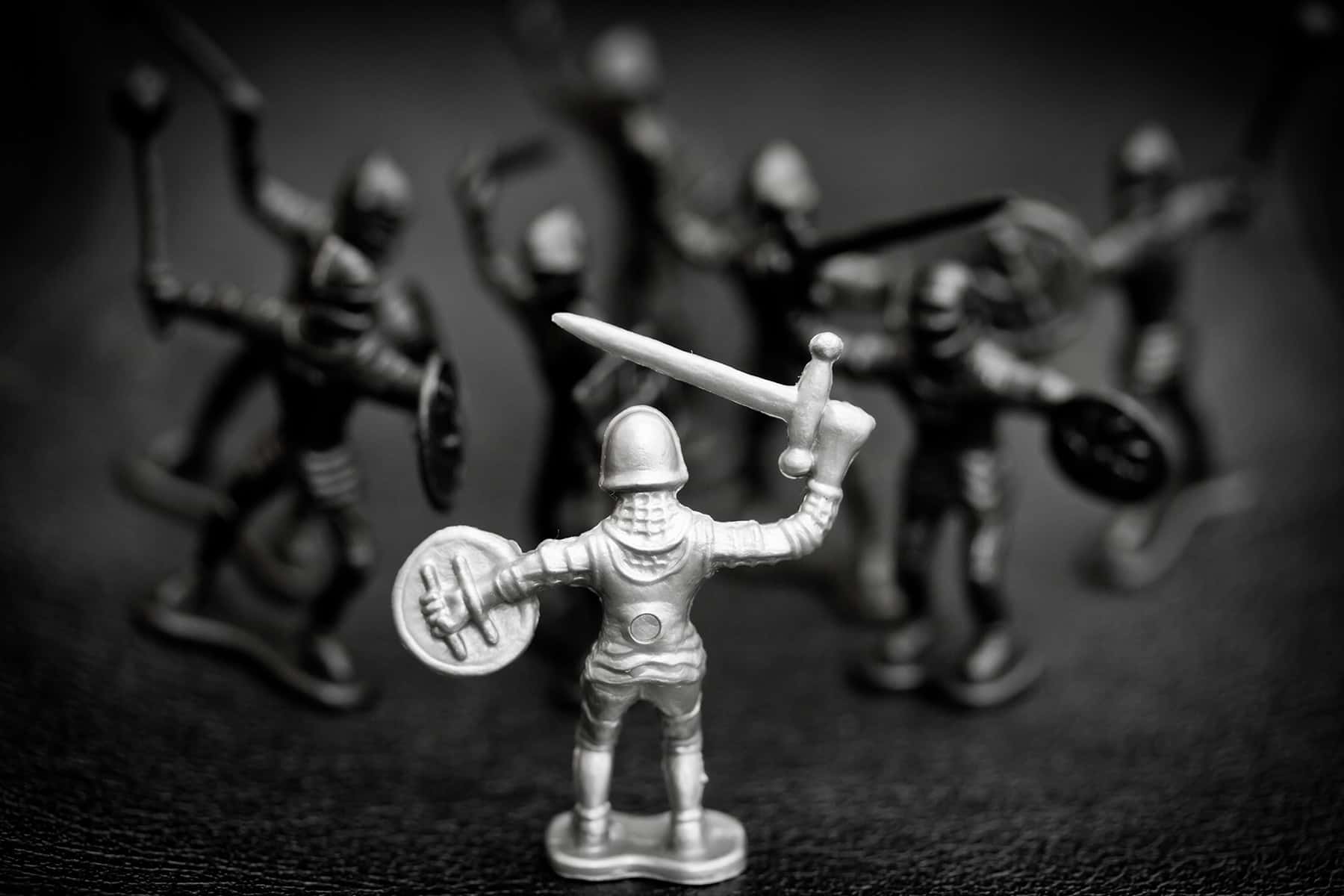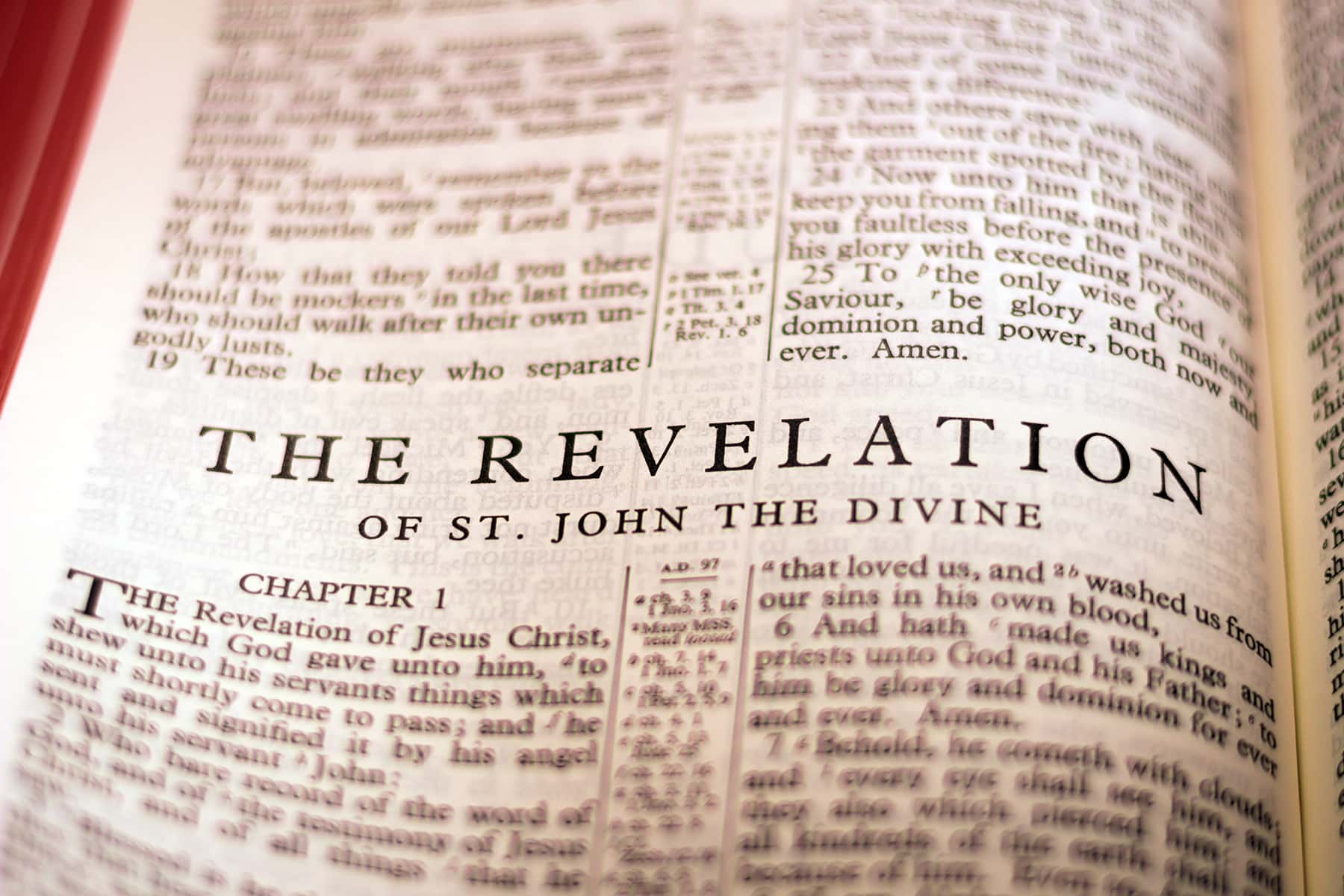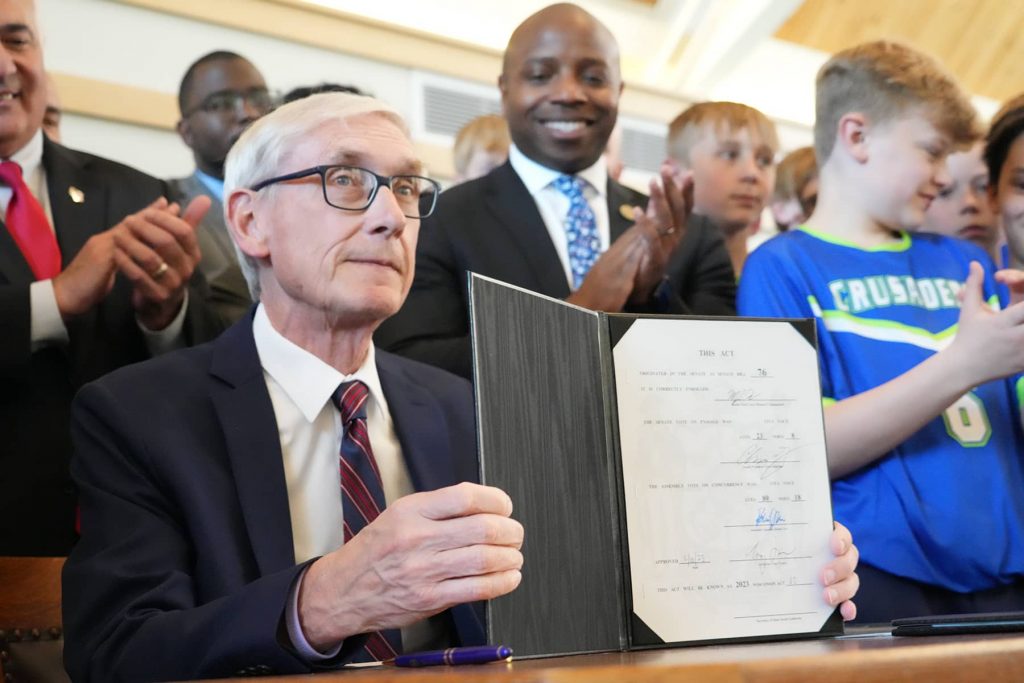
By Christopher Douglas, Professor of American Literature and Religion, University of Victoria
In the United States, a “demoncrat” is an occasional slur among conservatives for a Democratic Party politician or voter, implying that the party is, well, demonic.
While demoncrat is not quite popular usage, the concept, it turns out, is widespread. A recent poll by the Public Religion Research Institute indicates that 18 per cent of Americans believe that the “government, media and financial worlds in the U.S. are controlled by a group of Satan-worshipping pedophiles who run a global child sex-trafficking operation.”
Similar numbers believe “a storm is coming soon” and that “true American patriots may have to resort to violence in order to save our country.”
As with the original 2016 Pizzagate conspiracy — in which Democratic officials, including Hillary Clinton, were accused of involvement in child sex-trafficking — and the larger QAnon conspiracy movement, the enemies are Democratic Party politicians or voters. How did we get here?
Apocalyptic perspectives
Conservative propaganda organs such as Fox News, One America News Network and Newsmax circulate these fantasies to their viewers, but I would like to suggest they do not originate there. Their beginnings may have more to do with apocalypse, an important element of Christian theology that is dominant among conservative white Christians, especially evangelicals.
Apocalypse is cluster of ideas that characterizes two books in the Bible: Daniel and Revelation. The context for both books were similar theological crises: How was it that God’s people — Jews or followers of Jesus — could suffer so under a hostile empire?
The Book of Daniel was written in the context of oppression. In the 160s BCE, Seleucid emperor Antiochus IV forbade Jews from circumcising their boys. The sacred Jerusalem temple may have been violated with a statue of Zeus. A military parade turned into a planned massacre, with Jews murdered or sold into slavery.
While it’s not as clear what kinds of persecutions early followers of Jesus faced in the Roman Empire, the Book of Revelation also addressed questions of why God allowed his followers to face misery and destruction. In the apocalyptic theology they articulated, Daniel and Revelation hit upon some new answers to the problem of suffering.
God, it was thought, had cosmic enemies whose servants control the human empires that persecuted God’s people. God would intervene soon in a cosmic battle to restore his kingdom, bringing reward or punishment in an afterlife.
Apocalypse repopulated the cosmos with divine beings, including the invisible powers that sponsored their political opponents. What marks apocalyptic theology is this extreme moral dualism, in which one’s political opponents are the enemies of God, controlled by demonic forces.
While apocalyptic theology has always been part of Christianity, it was rejuvenated in the 19th century and became dominant in white evangelicalism. It informs the world view of conservative white Christians, many of whom regard their political opponents in the Democratic Party as demonically controlled — even worshippers of Satan.
Democracy “left behind”
Democracy and apocalypse are incompatible. The Left Behind series, by Christian fundamentalist authors Tim LaHaye and Jerry Jenkins, is a fictionalization of the apocalyptic events portrayed in the Book of Revelation.
In the novels, the charismatic Antichrist is elected as the secretary general of the United Nations where he imposes a one-world religion, takes away Christians’ religious freedoms and violently persecutes believers. Conspiring behind the scenes with international financiers — and aided by hypnosis — he rises to power through democratic elections that he manipulates.
Elections, in other words, do not confer legitimacy. The authors, as well as the series’ Christian characters and readers, understand the larger supernatural forces conspiring behind elections: The demonic manipulates the democratic. And aside from demons, apocalypse breaks democracy’s norms because extreme moral dualism delegitimizes one’s opponents.
In a new research article, I argue that Left Behind illuminates why conservative white Christians have come to imagine themselves as persecuted: they have been compelled in recent decades to share political and cultural power with other groups. With 80 million copies of the series sold, Left Behind both reflects and influences readers in its mode of apocalyptic politics, where political opponents are portrayed as the servants of Satan who must be resisted, sometimes violently.
Abbie Richards, an American disinformation researcher, recently ranked contemporary conspiracy theories. It is no accident that some of the conspiracy theories most detached from reality and most dangerous have Satanic or religious components in which the world is ruled by a “supernaturally powerful group.” Such conspiracies are descendants of — or close cousins to — apocalypse.
But even in the absence of belief in demons, apocalyptic politics marks the conspiracy theories behind the “Big Lie” that the 2020 election was stolen from President Trump. And conspiracy theories invite counter conspiracies. Rolling Stone recently reported new allegations in the investigation of the January 6 insurrection that “Stop the Steal” rally organizers were planning with members of Congress and White House officials.
Chief of Staff Mark Meadows developed a PowerPoint to share plans to manipulate America’s creaky electoral machinery to overturn the democratic will of the voters and to swear in the defeated Donald Trump for a second term.
In apocalyptic politics, all uses of power by the good side are considered fair. It contends that the demoncrats, illegitimate even if elected, must be prevented from seizing power from God’s chosen people in his favoured nation.
Originally published on The Conversation as Republicans draw from apocalyptic narratives to inform ‘Demoncrat’ conspiracy theories
Support evidence-based journalism with a tax-deductible donation today, make a contribution to The Conversation.















